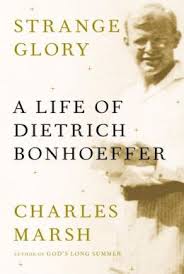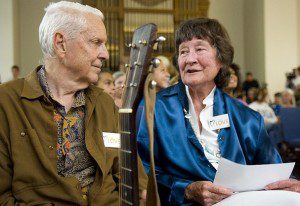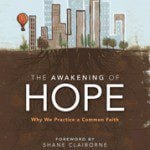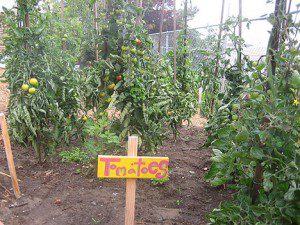
It’s Saturday, and I’m in Little Rock, Arkansas, at the invitation of local Episcopalians to give a retreat on Saint Benedict and the vocation of peacemaking in community. We’ve started the morning with some attention to the desert mothers and fathers, to the practices of community that Benedict lays out in his Rule, to the long, slow work that peacemaking is if we do it in the way of Jesus.
But now, after sitting together and tending to history, we’re outside in the morning sun, turning the soil to plant a “pizza garden.” I meet Courtney, a kid from the neighborhood here in the 12th Street corridor that is most well-known for its drug arrests and gun violence. He’s here on a Saturday morning with the garden manager, Adrea, who also grew up in the neighborhood. I ask them how they became gardeners. “I’d never done any of this stuff,” Adrea says, “but I got an internship here at the community center when I was in college and the director told me, ‘You’re going to be a leader.’ Here I am a year later, managing this garden.'”
This month it’s Little Rock, last month it was Austin, Texas. I was sitting in a church fellowship hall, talking to a gathering of local folks who are interested in Christian community. Steven, whom I’d just met, was sitting beside me. “So what are you up to here in Austin?” I ask. He tells me he’s the “Good Soil Developer” for a local ministry called Mobile Loaves and Fishes. They aim to feed the homeless of Austin–or, rather, they aim to help them feed themselves. Toward that end, they’ve planted gardens throughout a trailer park when folks can find both shelter and the sort of work that will feed them at the end of the day. Steven says he’s become a sort of urban homesteader.
Everywhere I go these days, Christians who are trying to love their neighbors in a particular place are becoming gardeners. They’re figuring out how to raise chickens in the city, how to keep a compost pile in an apartment building, how to reclaim soil that’s been devastated by urban blight (“brown fields to green fields,” they say). Thirty years ago, Wendell Berry and other agrarians sounded a warning call about the “unsettling of America.” But in the places I visit, this land is being resettled by people with a passion for gardening with God.
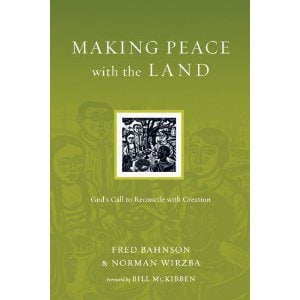 This is why I’m excited about a new book from Fred Bahnson and Norman Wirzba called Making Peace with the Land: God’s Call to Reconcile with Creation. In this most recent and final volume in IVP’s Resources for Reconciliation Series, Bahson and Wirzba extend the conversation about “reconciling all things” to the important question of our reconciliation with creation. Weaving together a rich theological vision, poignant data concerning our ecological crisis, and wonderful stories of hope, this book promises to be a manifesto for the movement that I see happening all around. “I cannot think of another book on making peace with the land that does so much in so few pages,” writes author Barbara Brown Taylor. Journalist and activist Bill McKibben concurs: “This book reminds us of the resources–scriptural, scientific, and human–that we have as we try to write a new story, one that emphasizes the need for people to back off, to allow the planet to operate on its own (God’s) terms instead of ours. It’s a rich book, which is appropriate, since this is a rich and beautiful world.”
This is why I’m excited about a new book from Fred Bahnson and Norman Wirzba called Making Peace with the Land: God’s Call to Reconcile with Creation. In this most recent and final volume in IVP’s Resources for Reconciliation Series, Bahson and Wirzba extend the conversation about “reconciling all things” to the important question of our reconciliation with creation. Weaving together a rich theological vision, poignant data concerning our ecological crisis, and wonderful stories of hope, this book promises to be a manifesto for the movement that I see happening all around. “I cannot think of another book on making peace with the land that does so much in so few pages,” writes author Barbara Brown Taylor. Journalist and activist Bill McKibben concurs: “This book reminds us of the resources–scriptural, scientific, and human–that we have as we try to write a new story, one that emphasizes the need for people to back off, to allow the planet to operate on its own (God’s) terms instead of ours. It’s a rich book, which is appropriate, since this is a rich and beautiful world.”
I think I’ll have to buy a box of these to carry with me when I travel, tracts for the movement that I see springing up everywhere I go these days. Good news is, wherever you are, you can get it now.


